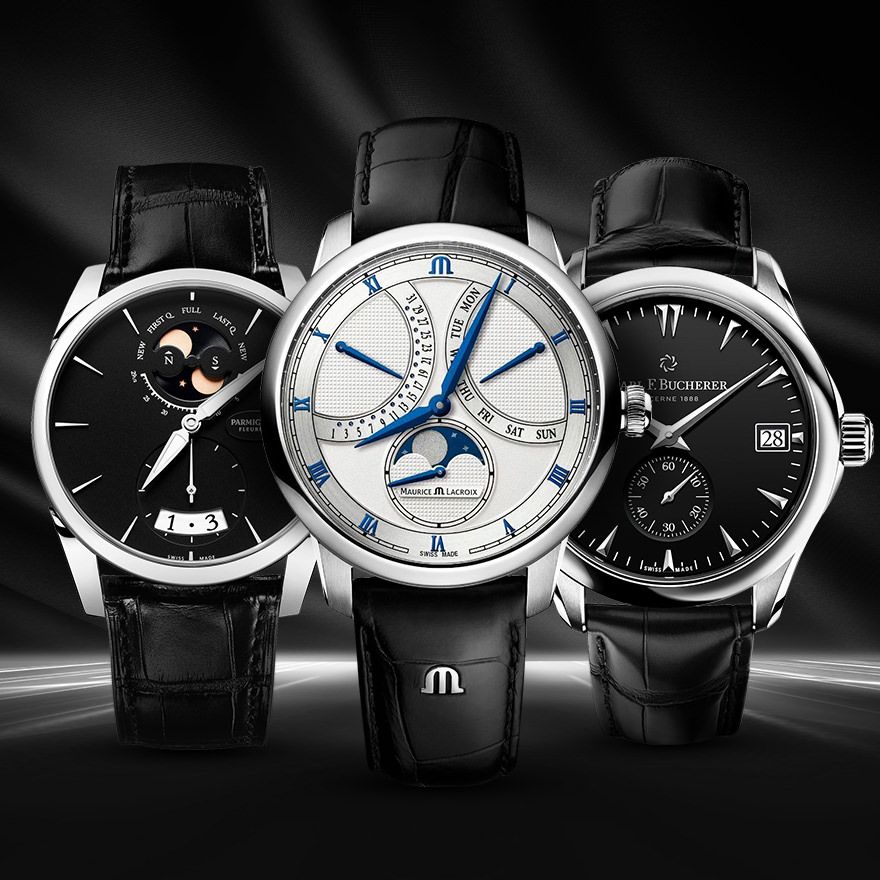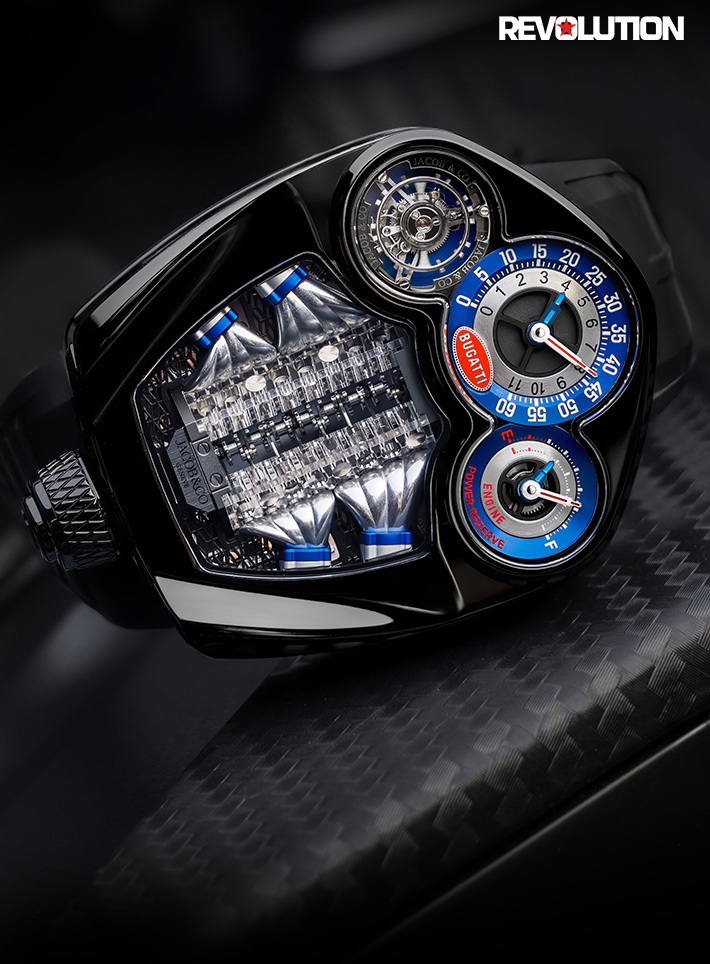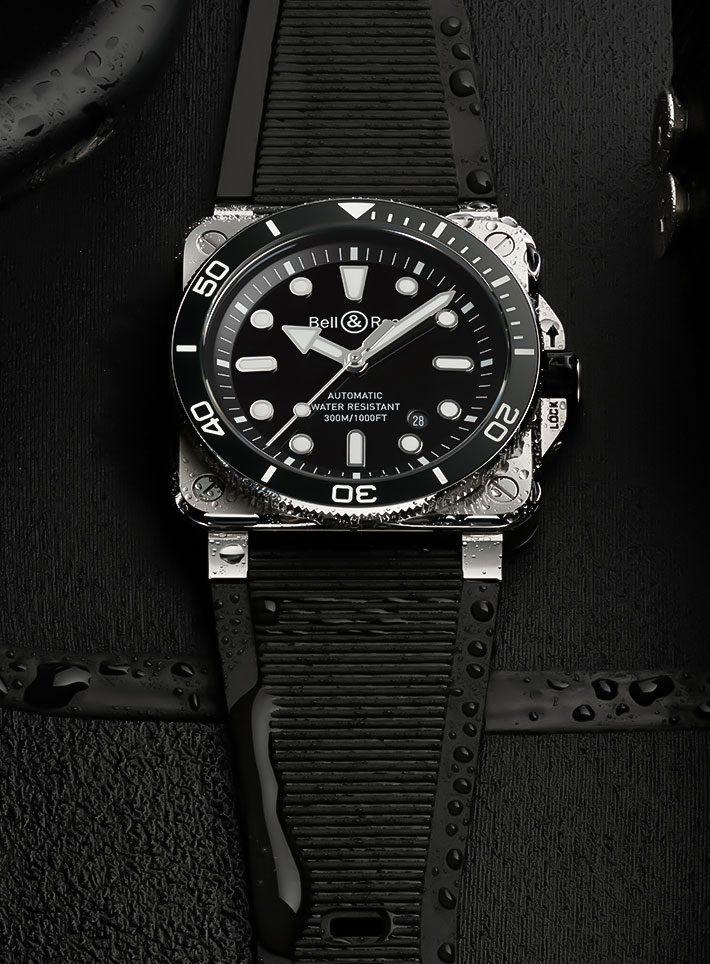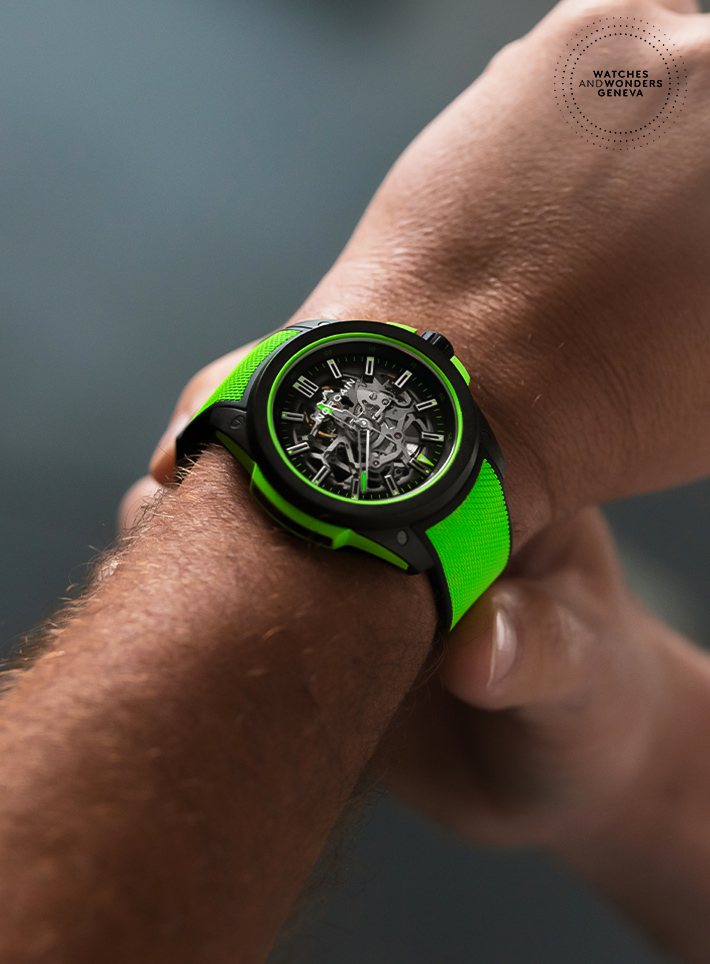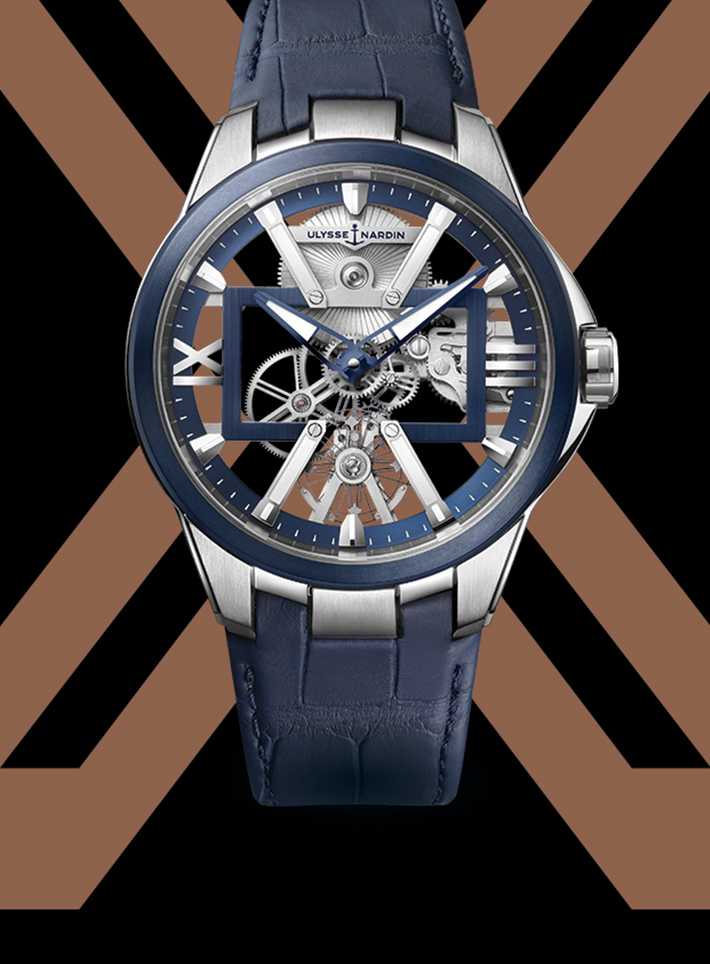Q&AHublot’s Chief On Their 2023 Novelties, Collaborations And The Art Of Fusion
Ricardo Guadalupe, Hublot’s CEO sat with us at Watches and Wonders 2023, as he delved into the spirit of the brand, the innovation and creativity, staying relevant through the worlds of football, art and the metaverse, projects for the planet, et al. Here are excerpts from the interview
May We Recommend
What’s the greatest highlight for you among Hublot’s novelties for Watches and Wonders 2023?
It would have to be the Big Bang Integrated Tourbillon Full Carbon. It’s very different from any other execution of a carbon watch in the industry—fully in carbon, including the bracelet, with a texalium upper layer. The weight of the watch is just 68g. It’s totally unique, and it presents our ‘Art of Fusion’ and mastery over materials.

Then there’s the Masterpiece—the MP-13—which reflects our mechanical innovation. Along with the high-end complication of a tourbillon, there’s also the retrograde hours and minutes—you don’t normally see both hours and minutes with a retrograde feature. It shows that Hublot is a real manufacture with modernity. We look towards the future, not the past. We are not a non-traditional brand—we do respect tradition, but we like to try and reinvent the art of watchmaking. That is our DNA, our art of fusion.
How do these novelties take the brand’s story forward?
Well, these are talking pieces, of which we will probably make just about 50 pieces each, so they will form a very small part of our sales. However, these are meant to showcase our innovation and achievements that make them talking pieces, as they speak to those who aspire to own and wear products from our brand. They show where we are today, and they position the image of the brand. But at the end of the day, the pieces that will be bestsellers will be models like our three-hand time-only titanium Classic Fusion.
How has the Square Bang performed since you first introduced it in 2022?
It’s been great. There is a space in the market for watches of various shapes. Tonneau-shaped pieces have always been around, and we did the Spirit of Big Bang for that. It’s been about 10 years since then. We knew there was an interest in square-shaped watches as well, but there aren’t too many square offerings in the industry. Another factor was that a lot of people don’t necessarily care about a brand’s history and so on. They tend to like what they see—especially the younger generation and people from certain markets across the world. We wanted to give them something that they wanted to see.

How do you manage to be fresh and innovative while retaining the signature look and DNA of Hublot?
We try to be innovative and creative—not necessarily at my level, but I try to encourage that energy among our teams, with the development of materials, movements and design. We have many projects at different levels under research and development. Sometimes they work, sometimes they don’t. With materials, we have about 30 to 40 projects under research and development, but only about five or six of those will eventually be realised and executed.
Of all the proprietary materials that Hublot have created over the years, such as the King Gold, which one has been the greatest success, and which one represents the brand’s ‘Art of fusion’ best?
I would say the first one, rubber, back in the 80s. We were the first brand to combine rubber with gold. After that, I would say, ceramic. It’s not like we were the first brand to make ceramic watches, but we played a key role in bringing it into the higher-end segment. We did the blacks and whites, but had tremendous achievements with coloured ceramic—there was vivid red, then yellow, blue and green. And now, a lot of even traditional brands are using ceramic in a bigger way. It’s definitely a material that’s great for us.
What are the challenges of using sapphire crystal for not just the case, but even the bracelet, considering that it is a delicate material even though it is scratch-resistant?
Sapphire has been a huge challenge. It is one of the hardest materials, but it is also fragile and can break under pressure or impact. That’s the case with even ceramic for that matter. We always tell our customers who buy a sapphire crystal watch that they are buying an incredible piece, but one that is also fragile. Still, it is still absolutely fine to wear it as you would normally wear any other watch. In sapphire crystal, we have been leaders. The industrial process of creating sapphire crystal components is huge. We are practically the only brand to produce not just five or 10 pieces, but up to 100 watches per year. Also, our sapphire crystal watches use the material for various components, including the bezel, plates, the hand parts, and so on.
How do you go about deciding on various colours in ceramic and sapphire crystal?
It really depends on the research and development that goes behind creating these materials in various colours. A colour could take about two to three years, and based on when we’re happy with a colour, we bring it out. Of course a black might come first, a blue after that, but it really depends on what we’re ready with. There’s no scientific or strategic approach to deciding on what to bring out when.
Talk about your artistic collaborations, especially the one with Takashi Murakami, the most recent.
Hublot loves art. As you know, Hublot has already been in the world of sport—football in particular. We wondered what else we could get into, and that’s how art happened. We’ve collaborated with a number of artists, and now it’s Murakami. He has the smiling flower as his symbol, and we wanted a way to use that flower as a motif, but also have it perform a function. So, we decided to have a flower rotor, almost bringing the smiling flower alive. The result is amazing. We have, as a result, the fusion of the art of Murakami and the art of Hublot. We had two pieces earlier—one black and one sapphire-rainbow—and now we have a new edition of 12 unique pieces that come with NFTs.
Speaking of NFTs, how do you see such offerings working out for Hublot? What kind of a role will NFTs and the metaverse in general play for Hublot or for the luxury watch industry in the years to come?
The idea of this is really to talk to a new base of consumers who are in the world of NFTs and in the metaverse. What we’ve done is that we’ve sold 12 NFTs to people, who will get access to a unique watch with each of those NFTs. It has created an incredible buzz within the community in that part of the digital world. It’s a younger audience, and the idea is to communicate on a new platform rather than restrict ourselves to conventional advertising, which has been done already.
Could you talk about your association with SORAI and your initiative towards helping wildlife and such causes?
When it comes to sustainability, a mechanical watch is very sustainable since it is eternal. We wanted to do something that would help the planet in a different way, where we could help make a change—we cannot do everything, we cannot protect every species, or the entire planet. And I met Kevin Pietersen, the cricket player, who told me about his project. So, I said let’s do something together to help the cause of protecting rhinos, particularly in South Africa—the part where a majority of the population of the rhino live. So, we did three special editions over the last five or six years. We have raised $2 million to be able to have an impact in helping, by giving instruments to the rangers, by financing sanctuaries for the small rhinos who will be reintroduced to the wild later, and so on. So that was our approach—to choose one project, but do something strong with it.
In this world of gender labels becoming irrelevant, can you imagine an industry where there is no such thing as a men’s watch or a ladies’ watch?
No… There is a trend of watches that can be worn by men and women. But there are still watches for men and watches for women. If there’s a 32mm watch with diamonds and a pink strap, I don’t see men going for it. And if there’s a bulky 44mm watch, I don’t see women going for it. But in the 39-40mm space, there’s more of a unisex appeal.
Do you think products like the MoonSwatch are getting younger people interested in wearing analogue watches again?
That’s a big part of it, because, I think that even if you look at big brands, they are reinventing watches that may touch the younger generation more. We are also doing that—creating watches that are disruptive and are not just simple, traditional timepieces.
Where do you stand on the growing market for pre-owned watches and Hublot’s products being a part of it?
We check and verify that the value of the pre-owned products is of the right level. But we don’t control the market, because we are manufacturers producing new watches. But I must say, we are not that old a brand, so we don’t have as many watches out there to be traded and resold. Others have tens of millions, while we have only about one million watches that have been created since the beginning of the brand.
